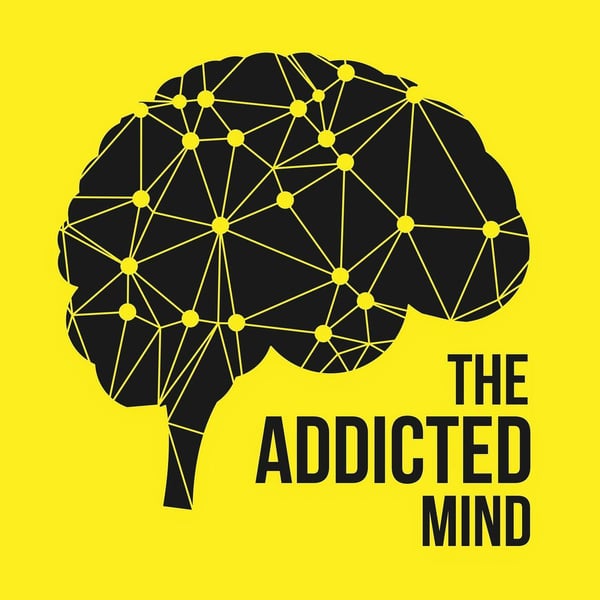34: Sudden Grief - Losing A Loved One To Addiction
The Addicted Mind Podcast
Duane Osterlind, LMFT
4.8 • 621 Ratings
🗓️ 5 April 2018
⏱️ 33 minutes
🧾️ Download transcript
Summary
Our guest on this episode of the Addicted Mind podcast is Dr. Louise Stanger, a clinician, interventionist, author, and trainer specializing in the grief and loss experienced by the family members of an individual who dies of an opioid overdose. Since nearly all overdoses occur somewhere other than the hospital, there is not much scientific research on the opiate epidemic. We do know that in 2016, 155 people per day died of overdoses, and for every one of those people, at least four family members were affected. In addition to these overdoses, 88,000 people died in alcohol-related incidents in 2016.
Families often approach Louise for an intervention for their loved one after they have tried everything else they can think of, and Louise uses the intervention to encourage systemic change in the addict’s life. Addiction is a disease which is treatable, despite the stigma attached to it that claims otherwise.
Grief looks different for everyone; it could involve shame, casting/placing blame, embarrassment, relief, isolation, anxiety, and even feeling unworthy to mourn their loss. Family members often feel that they did too much to enable their loved one’s addiction or they did not do enough to encourage them to leave the addiction behind. The most helpful thing you can do to help someone experiencing this loss is to be there for them, to call them, bring them meals, help them run errands, babysit so they can have a few minutes to themselves, and listen to them. The best thing to do if you are experiencing this loss is to know that you are not alone and seek help in whatever form you feel comfortable.
After experiencing the sudden death of a loved one, often the first person that family members interact with is the funeral director, coroner, or police officer, so it is imperative that these professionals have some training in dealing with this traumatic grief. Additionally, Louise believes that treatment centers and faith-based organizations must provide programs and support to these families as they cope with their loss.
Support this podcast at — https://redcircle.com/the-addicted-mind-podcast/donations
Learn more about your ad choices. Visit megaphone.fm/adchoices
See Privacy Policy at https://art19.com/privacy and California Privacy Notice at https://art19.com/privacy#do-not-sell-my-info.
Transcript
Click on a timestamp to play from that location
| 0:00.0 | Hello everyone. Welcome to the Addicted Mind podcast. My name is Dwayne Austerland and I'm your host. This is episode number 34. My guest today is Dr. Luis Stanger and she is going to talk about the opioid epidemic and she's going to talk about the grief and loss that comes |
| 0:24.3 | when someone loses a loved one to this epidemic. This is a pretty tough episode and it was |
| 0:32.4 | pretty tough to record. It was almost shocking to hear some of the statistics about the opioid epidemic and how many people are impacted by what's going on with this crisis. |
| 0:46.8 | I really appreciated Dr. Stanger's candor about how we can help individuals who have been impacted by the loss caused by this |
| 0:57.3 | opioid epidemic and when someone loses a loved one how we can be there to help them and help |
| 1:06.0 | them through that process and through that journey and to all the families out there that have been |
| 1:13.2 | impacted by this opioid epidemic, my heart goes out to you. May you find healing, may you find |
| 1:20.3 | peace, and may you find growth. Okay. Let's begin this episode. |
| 1:34.2 | Hello everyone, welcome to the Addicted Mind podcast. |
| 1:36.2 | I have a wonderful guest today. |
| 1:47.1 | Her name is Dr. Luis Stanger, and she is going to talk about the opioid epidemic, and specifically she's going to talk about the opioid deaths and the family grief. And I think this is going to be a tough topic to discuss, |
| 1:53.8 | but I'm really thankful to have her on because this is such an important topic to bring up |
| 1:58.7 | and talk about. Louise, do you want to introduce yourself? |
| 2:02.5 | Hi, my name is Dr. Louise Stanger. I've been a clinician since 1973. I'm an author, |
| 2:10.6 | a trainer, and I work with families all across the globe, helping them invite their loved ones to change and to get the |
| 2:19.2 | much needed treatment that they need. Right. We were talking a little bit earlier, and you're also |
| 2:26.3 | an interventionist as well. Can you talk just a little bit about that? As an interventionist, yes. |
| 2:31.9 | I've been doing interventions for over 35 years and actually |
| 2:36.0 | what you do not know is I have a textbook that's going to be coming out called CIS, |
| 2:41.8 | collective intervention strategies. And my passion is helping families help themselves and help them |
| 2:49.9 | get their much needed loved ones into treatment. |
| 2:53.5 | And so in that respect, I tend to work with really complicated family systems, albeit alcohol, |
... |
Please login to see the full transcript.
Disclaimer: The podcast and artwork embedded on this page are from Duane Osterlind, LMFT, and are the property of its owner and not affiliated with or endorsed by Tapesearch.
Generated transcripts are the property of Duane Osterlind, LMFT and are distributed freely under the Fair Use doctrine. Transcripts generated by Tapesearch are not guaranteed to be accurate.
Copyright © Tapesearch 2025.

